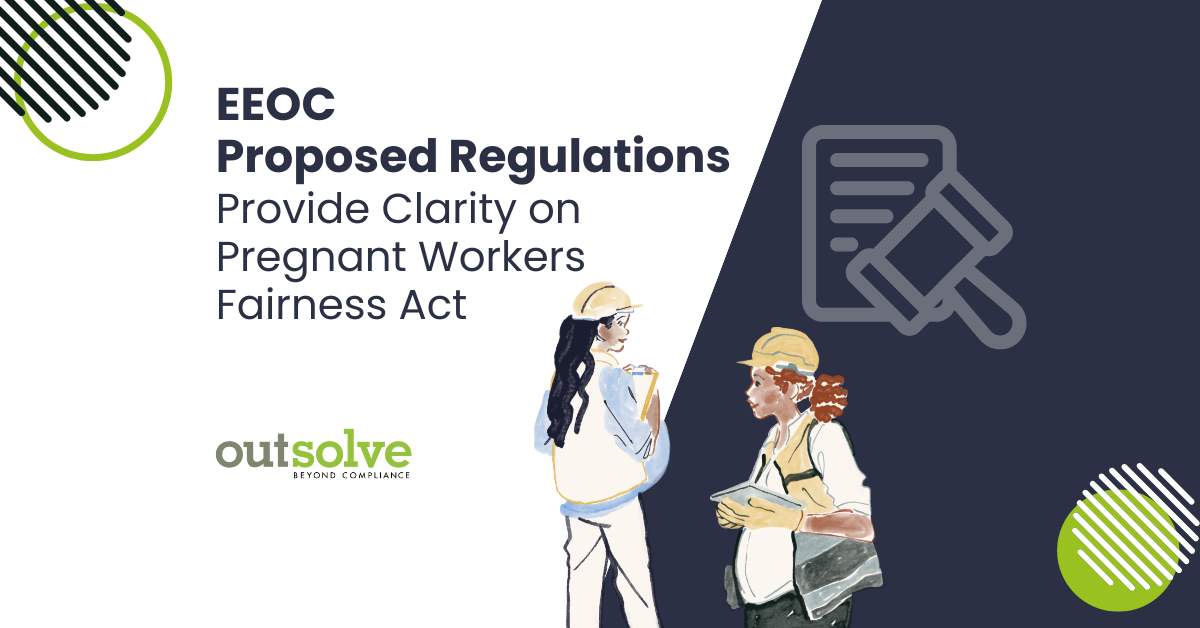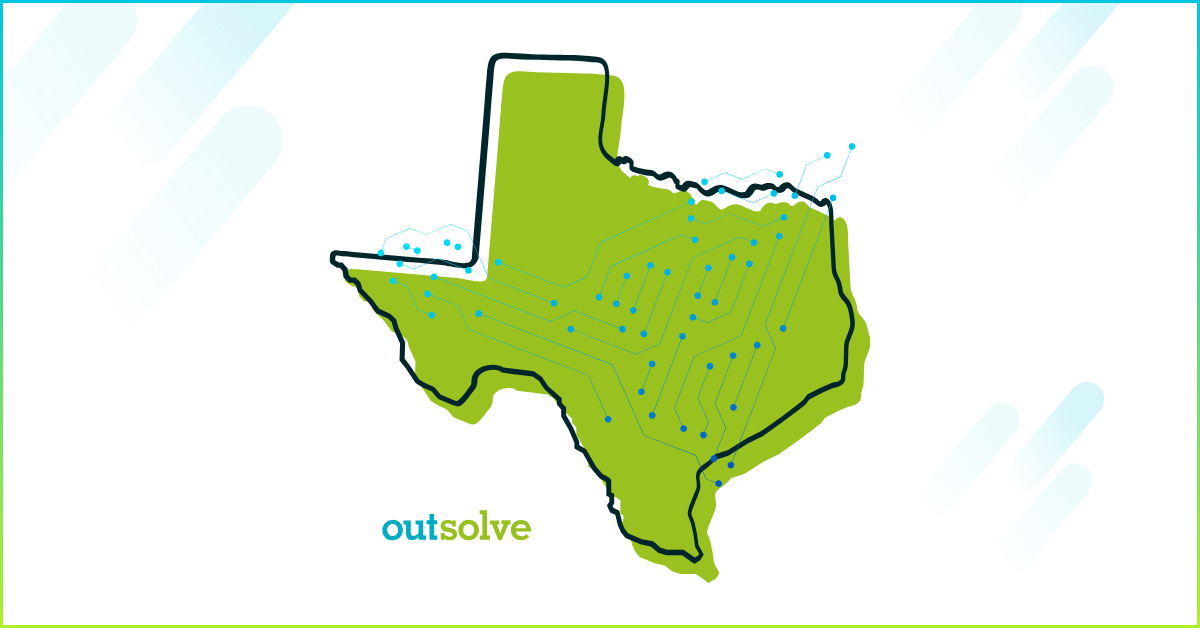2 min read
Proposed Regulations from EEOC Provide Clarity on Pregnant Workers Fairness Act
 Debra Milstein Gardner
:
Aug 22, 2023 11:00:00 AM
Debra Milstein Gardner
:
Aug 22, 2023 11:00:00 AM

The Equal Employment Opportunity Commission (EEOC) has issued a Notice of Public Rulemaking (NPRM) with the unpublished proposed rule in the Federal Register implementing the Pregnant Workers Fairness Act (PWFA). PWFA does not replace or preempt other federal, state, or local laws protecting pregnancy, childbirth, or related medical conditions.
It is currently posted seeking public comment until October 10, 2023. The EEOC will then have until December 29, 2023, to issue final regulations. To assist employers understand the proposal rule, EEOC issued a Summary of Key Provisions of the EEOC’s Proposed Rule to Implement the Pregnant Workers Fairness Act.
On November 23, 2020, OutSolve posted a blog providing an overview of the PWFA, which was signed by President Biden in December 2022. Private and public employers with 15 or more employees are required to provide reasonable accommodation(s) to pregnant workers and applicants who need them because of their pregnancy, childbirth, or related medical conditions [e.g., fertility treatments or postpartum depression] unless an undue hardship on the operation of the business of the covered entity is created.
The PWFA aims to fill in the gaps between other federal workplace laws with respect to:
- existing protections available to pregnant workers and applicants [see definitions below],
- taking time off under the Family and Medical Leave Act (FMLA) for prenatal or pregnancy-related medical appointments, or for therapy sessions for postpartum depression, and
- reasonable accommodations under the Americans with Disabilities Act (ADA) and other state and local laws, such as: access to closer parking, flexible work hours, appropriately sized uniforms and safety apparel; additional break time, ability to sit or drink water, exemption for activities that may be strenuous or dangerous.
The PWFA defines “covered entity,” “employee,” and “person” consistent with Title VII. Similarly, terms such as “reasonable accommodation” and “under hardship” are to be construed consistent with the ADA. However, the term “known limitation” goes beyond the ADA, meaning “physical or mental condition related to, affected by, or arising out of pregnancy, childbirth, or related medical conditions that the employee or employee’s representative has communicated to the employer whether or not such condition meets the definition of a disability specified in section 3 of the Americans with Disabilities Act.”
The definition of pregnancy, childbirth, or related medical conditions is extremely broad and includes current, past, and potential pregnancy, lactation, use of birth control, menstruation, miscarriages, and abortion. The law also states that workers with healthy or normal pregnancies are permitted to seek accommodations.
The PWFA also identifies the employer conduct that is prohibited, all relating to accommodations.
Since the law took effect on June 27, 2023, the EEOC has been accepting charges against employers allegedly violating the act.

The PWFA does not replace or preempt other federal, state, and local laws that provide more protection to workers impacted by pregnancy, childbirth, or related medical conditions. Employers also need to comply with the pregnancy provisions of Title VII, the ADA, FMLA, as well as state and local laws. The PWDA fills in the gaps of these federal laws and goes further than the Pregnancy Discrimination Act of 1978 (PDA).
Employers that work with employees in good faith to identify and grant accommodations which do not create an undue hardship should be able to defend their actions in the event of a formal complaint. If the charging party prevails, they have the same relief available under Title VII, including reinstatement, back pay, front pay, compensatory damages, punitive damages, and the right to recover reasonable attorneys’ fees.
Debra Milstein Gardner has worked in the Equal Employment Opportunity (EEO) and Affirmative Action (AA) space for the past 43 years while working in the public and private sectors in various human resources compliance roles. She began her career working for the Equal Employment Opportunity Commission and then went to the Marriott Corporation for nine years working in EEO, Affirmative Action and field human resource roles. In 1990, Debra founded Workplace Dynamics LLC providing EEO, AA, and DEI consulting services to government contractors. In 2016, Debra sold the affirmative action portion of Workplace Dynamics to OutSolve LLC and works part-time as a Market Analyst. Debra is a sports fanatic, routing for the Baltimore Ravens and all Virginia Tech Hokie teams. She loves to hike and boat in her mountain and lake community of Lake Lure, NC.
Weekly OutLook
Featured Posts

5 Key Compliance Items HR Can’t Afford to Ignore

HR Compliance Checklist: What Every HR Pro Needs to Know
Related Posts

What Texas HB 149 Means for HR Professionals
AI is already changing how companies hire, manage, and evaluate employees in the workplace. For HR professionals, AI is a game changer because it can...

New Jersey Pay Transparency Laws: What You Need to Know
Update: New Jersey proposed updates to its pay transparency law in October 2025. If passed, the requirements will be a first of its kind in that...

Legal Series: Top 4 HR Compliance Trends to Watch in 2026
This article is part of an ongoing legal series designed to provide insight and practical guidance on current and emerging workplace compliance...
